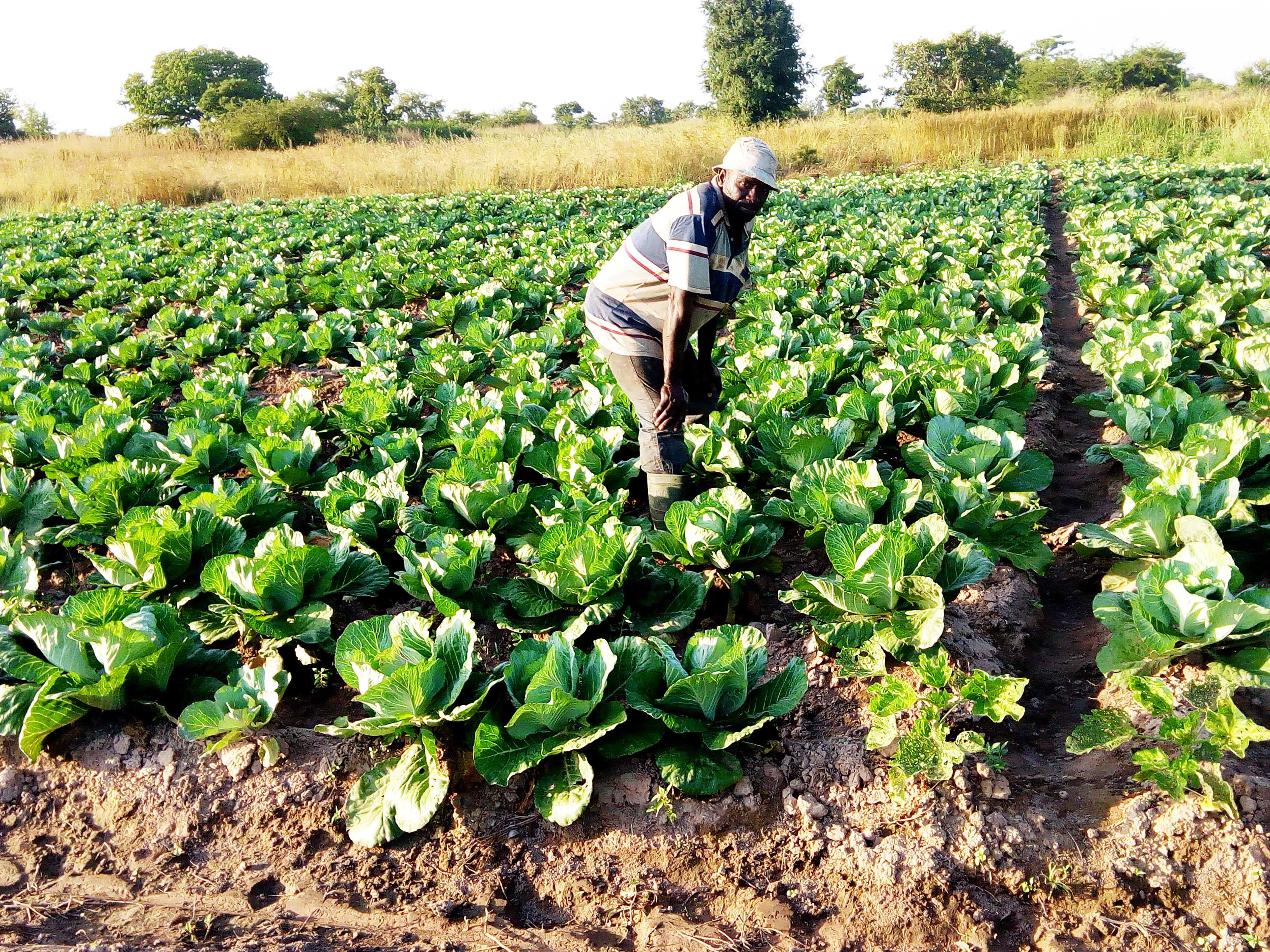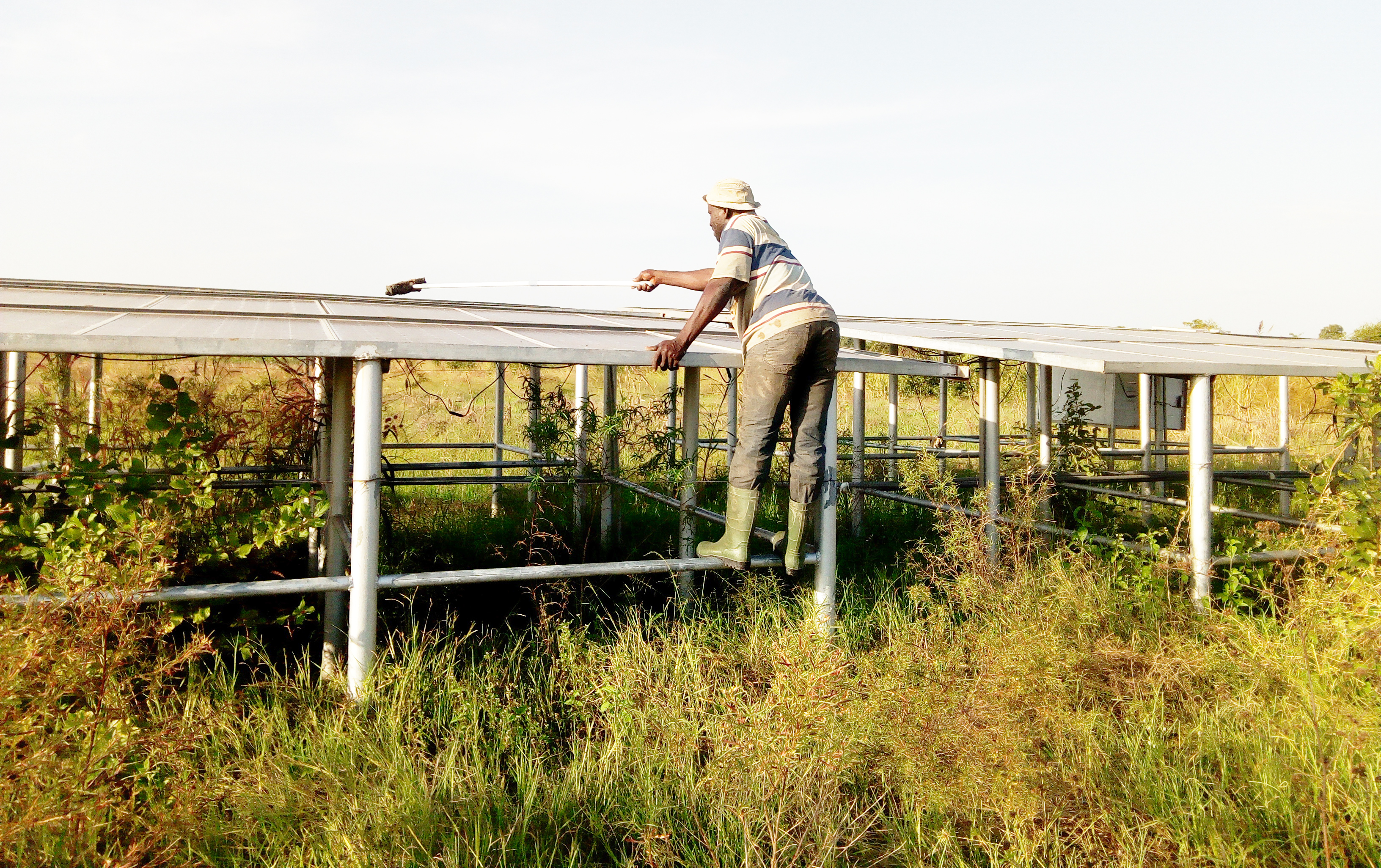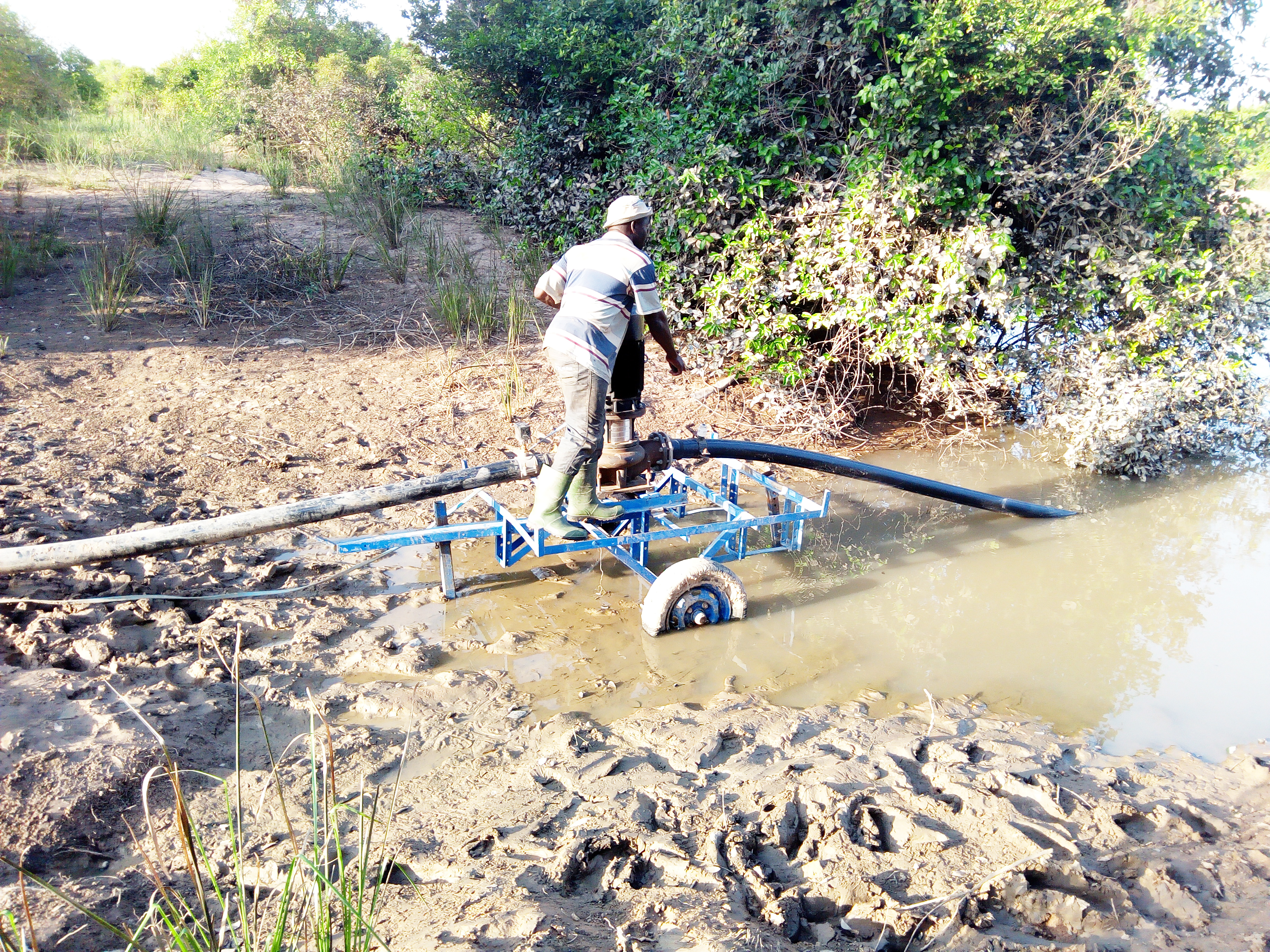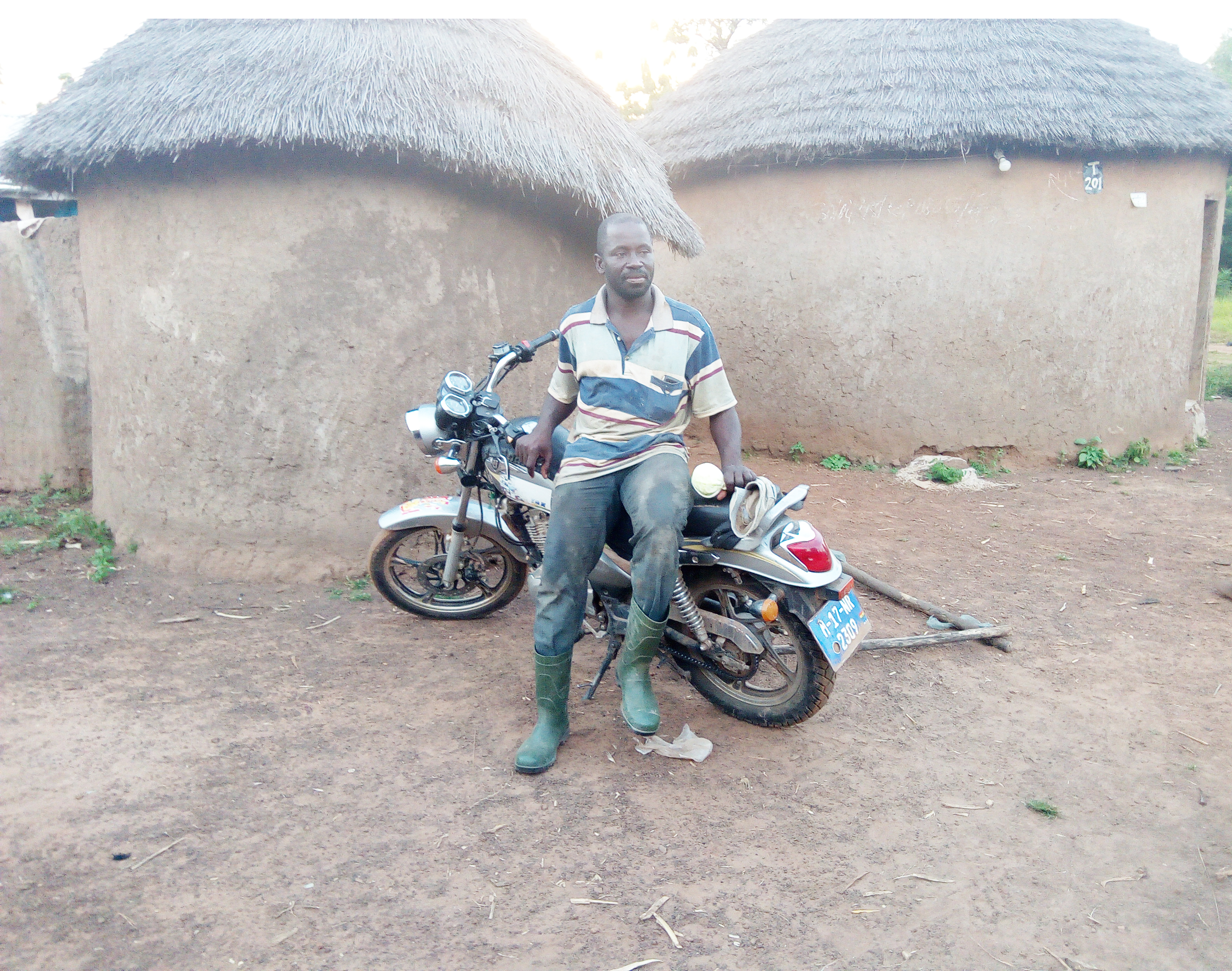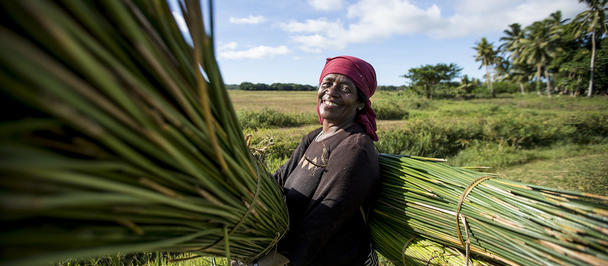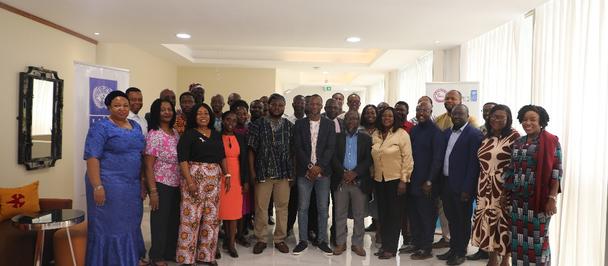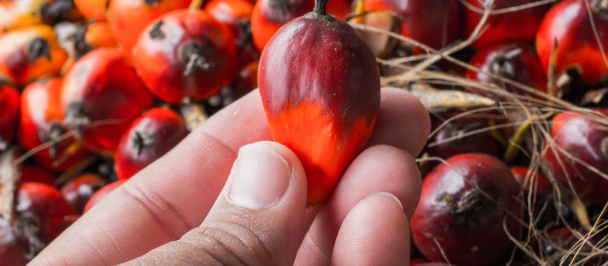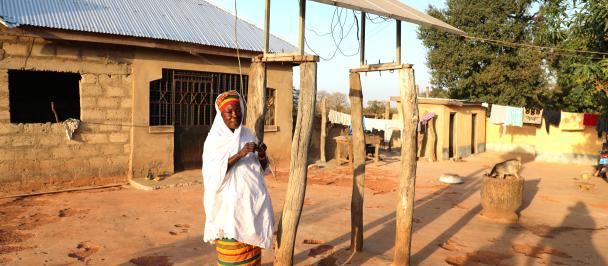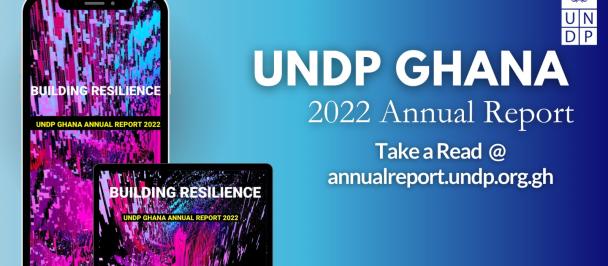Iddrisu Aboubakar in his vegetable farm. Photo: Praise Nutakor / UNDP
Imagine having to walk 12kilometers daily to a farm, to produce food to feed your family and many others. This notwithstanding, the biggest challenge is having to look for money especially during the dry season, to hire a petrol or diesel-powered water pump to irrigate your crops. The unsustainability of this irrigation process in the face of climate change was forcing many smallholder farmers like Iddrisu Aboubakar, a Vegetable and Fruit Farmer in Tamalgu in the Northern Region of Ghana, to rely on rain-fed agriculture. This was making it difficult to farm all-year round because Northern Ghana has only one farming season and it is much drier than the South.
Since 2001 when he started farming, due to his inability to afford the expensive fuel-powered irrigation pumps in his community, Iddrisu was farming only a quarter acre of plot and only once in a year. Life, he said, was unbearable, as he had to be living with his father with his family of ten (2 wives and 8 children) and taking care of them was challenging.
Thanks to an intervention by the United Nations Development Programme (UNDP), in partnership with the Energy Commission of Ghana and NewEnergy, a local NGO, Iddrisu’s farming career is now a different story. Solar-powered irrigation pumps provided by UNDP and the Energy Commission is supporting Iddrisu and 36 other farmers, including 17 women in Tamalgu to irrigate their vegetable and fruit fields all year-round, resulting in increased yields.
Today, Iddrisu, can boast of two and half-acre farm plot, with different crops such as cabbage, okro, tomatoes, pepper and banana, which he produces 3 times in a year. According to him, ever since the solar-powered irrigation intervention was provided in 2014, proceeds from his farming activities have helped him build a house. He has therefore moved from his father’s house with his family. Just last year, he also bought a motor-bike, which is facilitating the daily 12kilometer-journey from Tamalgu to Pashiguni where he has his farm near the dam and where the solar power facilities are located.
For Iddrisu and the many other farmer beneficiaries of the solar irrigation pumps, the intervention is not only providing them more incomes, but it is also helping to improve the nutrition of their households because of the increased yields and the ability to produce food crops throughout the year. As the leader of the solar-powered irrigation farmers, Iddrisu appealed for more solar-powered pumps to help other farmers in the community to derive the maximum benefits being enjoyed.
The solar-powered irrigation pumps were provided in four communities including Tamalgu, Nakpanduri, Datoyili and Fooshegu, all in Northern Ghana, to help 78 smallholder farmers to irrigate their farm fields regularly. The pumps are capable of watering up to a total of 15 hectares of land and the solar panels with a capacity of 22.5 kilowatts deliver up to 1 million litres of water each day.
Iddrisu Aboubakar, demonstrating how the solar panels are cleaned. Photo: Praise Nutakor/ UNDP
Iddrisu Aboubakar using the solar-powered pumps to irrigate his crops . Photo: Praise Nutakor / UNDP
Iddrisu Aboubakar with his motor bike in front of his house. Photo: Praise Nutakor / UNDP

 Locations
Locations